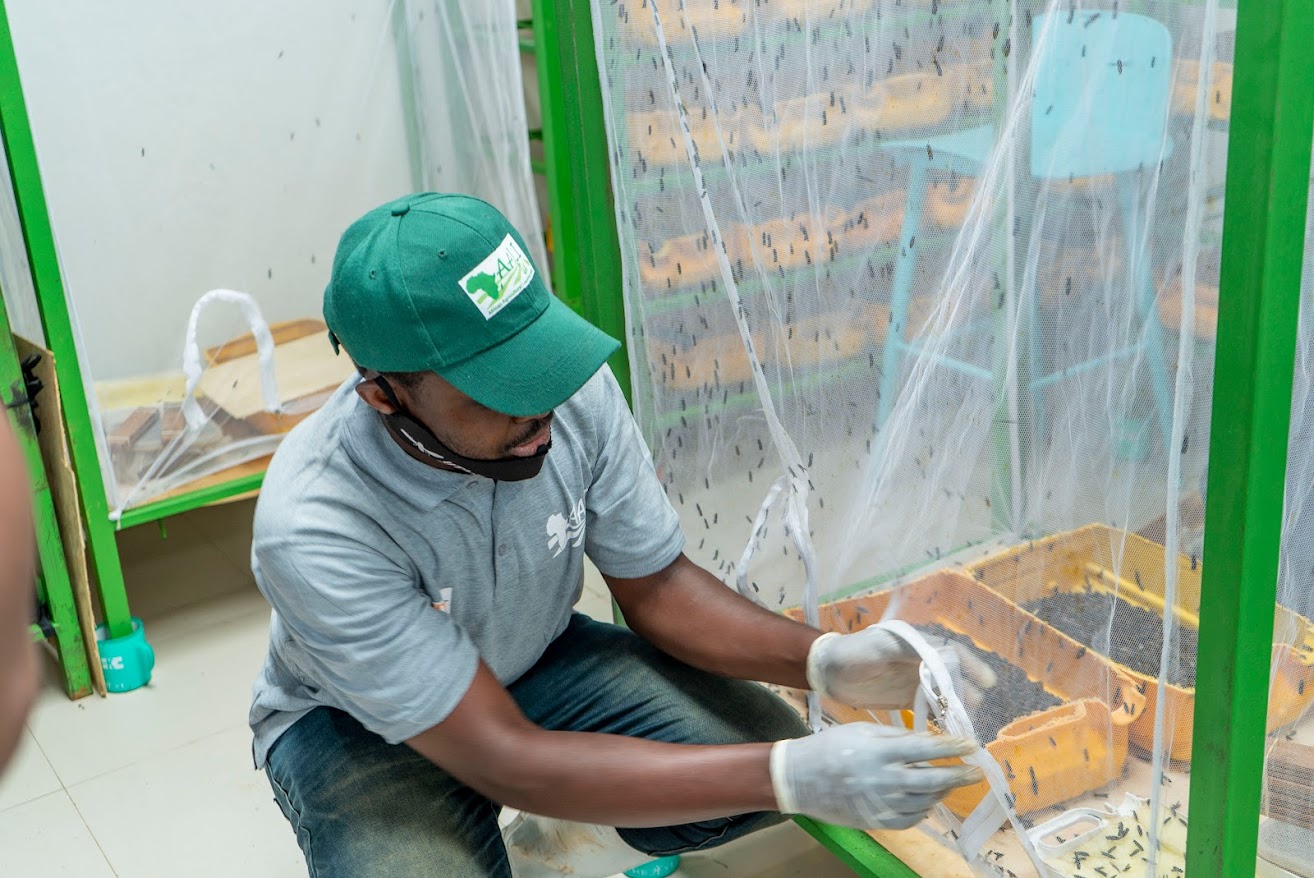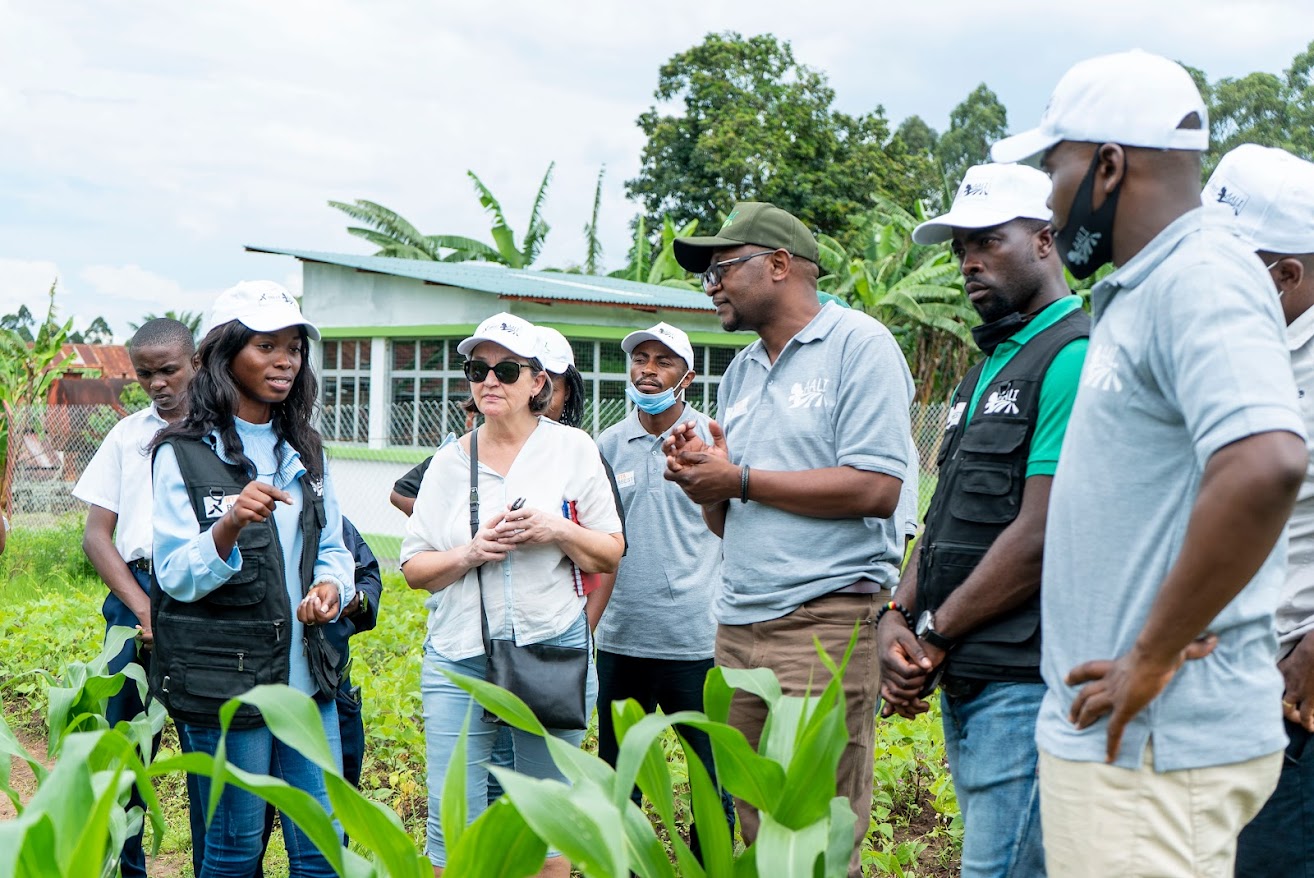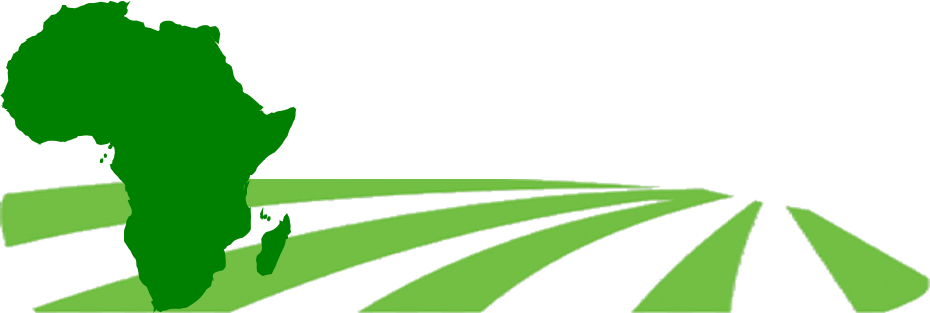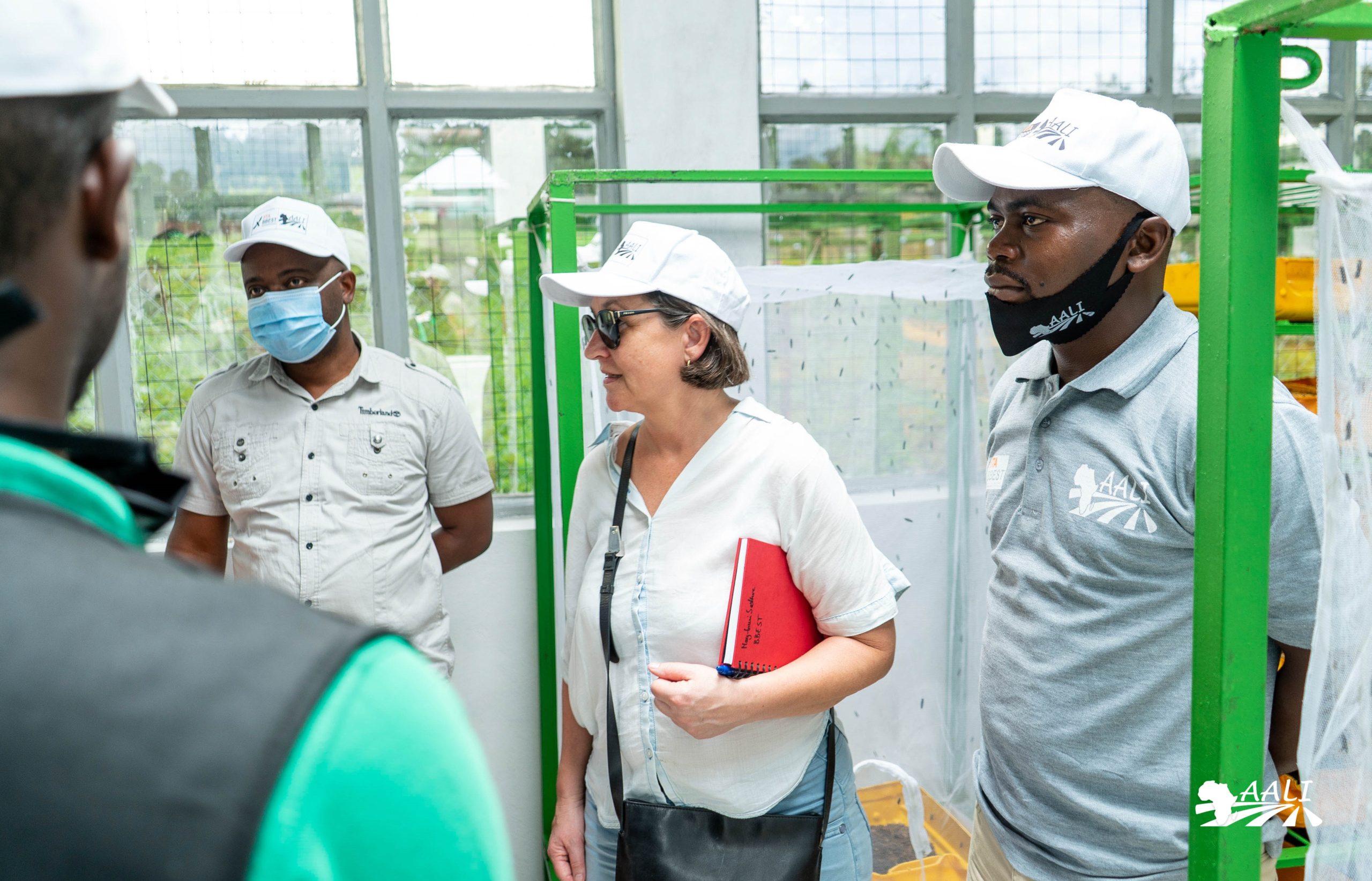From December 4 to 8, 2023, AALI welcomed Dr. May-Guri and Dr. Mawufe, both from the Black Soldier Fly for Bio Circular Economy and Environmental Sustainability (BBEST) project management team, on an inspection visit to BBEST project activities in and around Bukavu.
Hosted by Dr Chris Okafor, Managing Director and Dr David Bugeme, Director of Country Advisory Services of the African Agricultural Leadership Institute (AALI), the main objective of their visit was to assess the progress of the BBEST project and to strengthen collaboration between the various stakeholders in the implementation of the project in Bukavu, Democratic Republic of Congo (DRC). At the end of the visit, Drs May-Guri and Mawufe saw for themselves the effectiveness of 3 operational decentralized units, installed by AALI and its partners for the production of black soldier flies (BSF) and the reinforcement of synergies with agro-pastoral activities in the city of Bukavu and its surroundings. These first 3 decentralized units are located respectively, two (2) in Nyangezi, in the Walungu territory, and one in Kavumu, in the Kabare territory, South Kivu. In Nyangezi, these two units are managed respectively by the Institut Weza and the AALI Youth Brigade. These units have been fully equipped to facilitate the proper management of bio-waste generated through the agropastoral activities of these two partners, but also for the collection of waste in the surrounding markets.

The Weza Institute’s decentralized unit, in addition to being a framework for training and transferring MSN technology, will absorb waste from the school, the surrounding fields, and the market in order to strengthen the agro-pastoral activities carried out there. As for the Nyangezi Agriparc unit, it serves as a framework for the valorization of the crop residues (bio-waste) generated and the aquaculture activities that take place there. In Kavumu, the project is operated by a religious group headed by ‘Roman Catholic Fathers of Don Bosco’; The decentralized unit plays a crucial role in processing local waste and promoting sustainable practices among underprivileged young people, rescued from the streets and mentored by the church.

In addition to the visits to the decentralized units, in the same perspective of strengthening commitment and promoting Black Soldier Fly (BSF) technology in the country, Dr. May-Guri, Dr. Mawufe, Dr. Chris Okafor, and Dr. Bugeme had a productive exchange with the Governor of South Kivu, H.E. Mr. Théo Ngwabidje Kasi, on the major role of the BBEST project in waste management in South Kivu, particularly in the city of Bukavu. The Governor pledged his unwavering support and raised the possibility of collaboration between his government and North American Aerospace Defense Command (NORAD), the project funder.
At the end of their field visit and various exchanges with implementing partners and beneficiaries, the following recommendations were made: (1) use standard protocols for research activities in all four countries (Mali, Niger, Ghana, and the DRC) covered by the project.; (2) give priority to collaboration with local entrepreneurs, particularly market women and small gardeners associations and young people already involved in BSF production; and (3) promote knowledge sharing and the dissemination of innovation to local communities, and in particular to the private sector.

Indeed, this visit accentuated the joint efforts to add value to organic waste for agricultural development and, thus, improving food security efforts and living conditions of the beneficiaries. This is intended to reinforce the impact of the BBEST project in the intervention areas, paving the way for a promising future of environmental sustainability and community development. It is worth noting that AALI’s key partners in this project include the Bukavu City Council, the Weza Institute, the Catholic University of Bukavu (UCB), and the Roman Catholic (Salesian) Fathers of Don Bosco, working in the ADI-Kivu compound in Kavumu.

